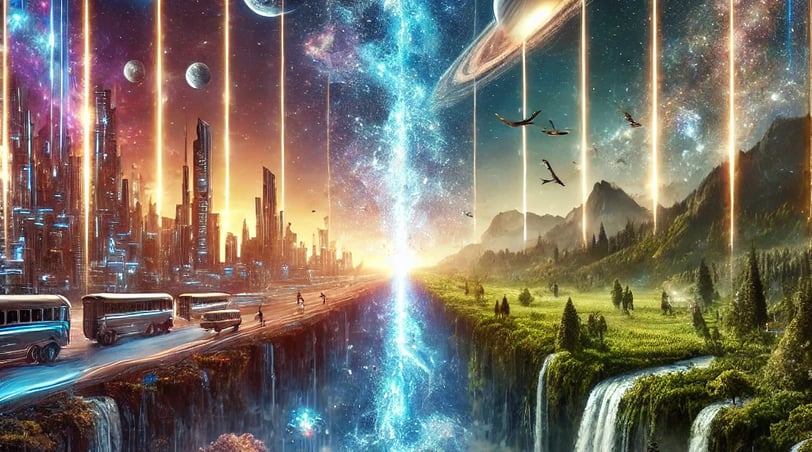Endless Possibilities: Are Parallel Universes Our Reality?
What lies beyond our universe? Every decision we make might be giving birth to a different universe. Parallel universes remain an unsolved mystery in the scientific world. But perhaps, this mystery is just one step closer to uncovering the secrets of the cosmos.
5/8/20241 min read


Parallel Universes: Beyond Science and Imagination
Are the boundaries of our universe truly the end, or could there be more beyond them? The theory of parallel universes suggests that our universe is not alone but is part of a much larger reality. This hypothesis has sparked great curiosity and excitement in the scientific community. Parallel universes lie at the intersection of quantum mechanics, cosmology, and even philosophy, making it a profoundly intriguing topic.
One of the most well-known foundations for parallel universes comes from quantum physics. The "Many-Worlds Interpretation" posits that every quantum event creates different possibilities, each forming its own universe. For instance, every choice you make could lead to the formation of alternative universes where other outcomes have occurred. This suggests that parallel universes might be extensions of our everyday decisions. However, this theory remains highly theoretical and lacks experimental proof.
Cosmology approaches the idea of parallel universes from a broader perspective. The concept of "multiverses" proposes that our universe may be one of many born from the Big Bang. Each universe could have its own physical laws, initial conditions, and even dimensions. Some universes might not support life at all, while others could mirror our own in remarkable ways. Imagine an alternate version of yourself thriving in one of these universes!
Scientists continue to develop various theories to understand parallel universes. String Theory, for example, suggests that different dimensions and universes might be connected within a "multiverse" framework. However, these ideas remain unproven as they require advanced technologies and methodologies to validate.
Parallel universes are not just a topic for science but also a prominent theme in popular culture. Movies, TV shows, and novels often explore this idea through captivating stories. For example, in one universe, Earth might be the product of an advanced civilization, while in another, chaos might reign supreme.
This theory expands our imagination about the universe's mysteries while deepening our quest to understand existence. Perhaps one day, we will discover concrete evidence of parallel universes. Until then, this concept remains a fascinating fusion of science and imagination.
